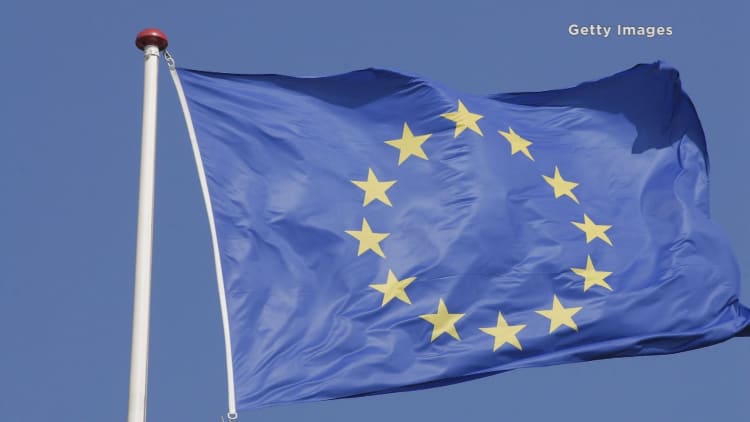
Britain might be about to vote on whether to remain part of the European Union (EU), but a new survey shows that anti-European feeling has spread across the continent – and there are countries who dislike the EU more.
"Euroskepticism is on the rise across Europe and that about two-thirds of both the British and the Greeks, along with significant minorities in other key nations, want some powers returned from Brussels to national governments," according to the survey by the U.S. think tank Pew Research Center on Tuesday.
Who loves the EU the most?
According to the spring 2016 "Global Attitudes Survey" of 10 EU countries, a median of just 51 percent of those surveyed held a favorable view of the EU with 47 percent having an unfavorable view of the bloc.
"A median of 42 percent in these 10 nations want more power returned to their national capitals, while only 19 percent favor giving Brussels more power and 27 percent favor the status quo," Pew Research Center, which conducted the survey among 10,491 respondents from April 4 to May 12 across 10 countries that account for 80 percent of the EU-28 population and 82 percent of the EU's gross domestic product (GDP).
It wasn't all bad for the EU, the survey found that the institution's strongest backers are the Poles (72 percent) and the Hungarians (61 percent).
In many other nations, however, support is tepid. Just 27 percent of the Greeks, 38 percent of the French and 47 percent of the Spanish have a favorable opinion of the EU.
Notably, support for the EU was higher in the UK, the country about to hold a vote on EU membership, with 44 percent of the British viewing the EU favorably, including 53 percent of the Scottish.
Despite the survey's results, public opinion polls in the U.K. remain tight between those who want to leave the EU and those that want it to remain within the 28-country political and economic bloc.
A median of 70 percent in the nine EU countries – the U.K. was excluded from this question – believed it would be bad for the EU if the UK quit. Only 16 percent said it would be a good thing.
Questioning the EU
The British were not the only nation to be questioning their place in the EU, however, with euroskeptic parties on the rise throughout Europe, especially against a backdrop of immigration, regulations and the controversial cost of EU membership.
Pew noted that the EU's image and stature had been through a "roller-coaster" ride in recent years and that it had noted that the portion of the public with a favorable view of the largely Brussels-based EU establishment fell markedly, especially at the height of Europe's financial crisis in 2012-2013.
"It (the portion of the public with a favorable view of the EU) subsequently rebounded in 2014 and 2015. But the EU is again experiencing a sharp dip in public support in a number of its largest member states," the center noted.
EU favorability was down in five of the six nations surveyed in both 2015 and 2016, Pew said. There had been a double-digit drop in France (down 17 percentage points) and Spain (16 points), and single-digit declines in Germany (8 points), the U.K. (7 points) and Italy (6 points). The Pew Research Center said the decline was driven by a fall in favorability among older people.
On the flipside, young people with those aged 18 to 34 were more favorable towards the EU than people aged 50 and older in six of the 10 nations surveyed. The generation gap was most pronounced in France – 25 percentage points – with 56 percent of young people but only 31 percent of older people having a positive opinion of the EU. There are similar generation gaps of 19 points in the UK, 16 points in the Netherlands, 14 points in Poland and Germany, and 13 points in Greece.


